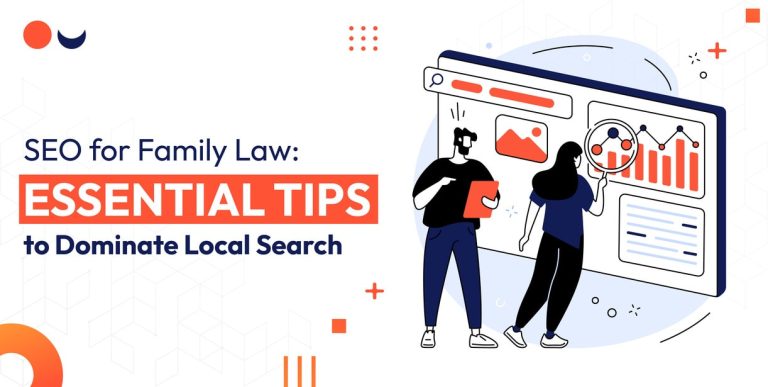Standing out from the crowd is critical in the digital domain of e-commerce for boosting visitors and maximizing sales. Excellent keyword research for e-commerce SEO is one great approach for accomplishing this. Understanding the importance of keyword research and adequately deploying various keywords can help online businesses improve their exposure, attract targeted traffic, and increase conversion rates.
This in-depth article will delve into keyword research for e-commerce SEO, covering its significance, the many keywords, and practical strategies for conducting successful keyword research.
Why is Keyword Research for E-Commerce Important?
To begin our investigation about why keyword research for e-commerce is necessary, let us first comprehend the significance of keyword research in e-commerce. The appropriate keywords can bridge potential buyers and your products or services in a competitive online landscape. You can do the following by targeting relevant keywords:
Enhance Visibility:
By optimizing your website and product pages for specific keywords, you boost your chances of appearing in search engine results when those phrases are searched for.
Attract Targeted Traffic:
Keyword research assists you in determining the search keywords that your potential clients are using. You may drive qualified traffic to your e-commerce site by effectively adding these keywords.
Improve Conversion Rates:
Connecting with users actively looking for similar items or services entails targeting the proper keywords. This raises the chances of them becoming paying clients.
How to Do Keyword Research for E-commerce SEO: Unleashing the Potential of Targeted Traffic
Keyword research for e-commerce SEO is critical for optimizing e-commerce sites for search engines and driving targeted traffic. E-commerce enterprises can gain a competitive advantage, attract relevant visitors, and enhance conversions by understanding the process of keyword research and utilizing its power.
This detailed tutorial will bring you through the process of conducting effective keyword research for e-commerce SEO, step by step. Prepare to unleash the power of targeted traffic and propel your online store to new heights.
Step-by-Step Guide to Keyword Research for E-commerce SEO:
Set Clear Goals and Identify Your Target Market:
Establish clear goals for your e-commerce business before going into keyword research. Define your target market and the items or services you wish to focus on. Personalize your keyword research to attract the correct clients by establishing your target audience.
Brainstorm Seed Keywords:
Begin your keyword research by coming up with a list of seed keywords. These are broad terms or phrases that describe your items or industry. If you sell handmade jewelry, for example, seed keywords can include “artisan jewelry,” “handcrafted accessories,” or “unique jewelry pieces.”
Expand Your Keyword List with Variations:
Once you’ve determined your seed keywords, broaden your list by generating variations. Consider product names, features, categories, or adjectives relevant to your offers.
Leverage Keyword Research Tools:
To refine and broaden your keyword selection, use keyword research tools. Tools like Google Keyword Planner, SEMrush, and Ahref can provide helpful information, including search volume, competition, and similar keyword ideas. Utilize these tools to discover fresh prospects and high-potential keywords.
Analyze Competitor Keywords:
Examine the keywords that your competitors are using. Examine their website content, product descriptions, and meta tags for clues about their keyword approach. Identify any gaps or underutilized prospects for your e-commerce store.
Consider User Intent:
Understanding user intent is essential for choosing the best keywords. Determine the purpose of the searches, such as whether consumers are looking for information, purchasing, or studying certain products. To attract the most relevant traffic to your e-commerce site, align your keyword selection with user intent.
Balance Search Volume and Competition:
Determine the volume of searches and the level of competition for each keyword. Consider keywords with a high search volume that are relevant to your target market, as well as the competitors. Striking a balance between search traffic and competitiveness can help you select keywords with high visibility and ranking potential.
Focus on Long-Tail Keywords:
Long-tail keywords should be included in your investigation. These are lengthier, more particular phrases that target specialist audiences. Long-tail keywords typically have lower search traffic but more excellent conversion rates because they attract consumers who have a specific intent. In order to acquire highly focused visitors, include relevant long-tail keywords.
Organize and Prioritize Keywords:
Sort your keyword list into categories or groups depending on product category, feature, or customer segment. Prioritize keywords closely related to your company’s aims and target audience. This will assist you in creating targeted content and efficiently optimizing product pages.
Monitor, Refine, and Adapt:
Keyword research is a never-ending activity. Monitor keyword performance, website statistics, and industry changes on a regular basis. Refine your keyword approach in response to changes in your e-commerce landscape, user behavior, and search trends. Adapt and change your keyword choices regularly to stay relevant and capitalize on new chances.
Types of Keyword Research for E-Commerce SEO:
In your keyword research journey, it’s essential to understand the different types of keywords and their purposes. Here are the four main types:
Informational Keywords:
Users that are looking for information or answers to their questions will utilize these keywords. Incorporating informational keywords into your content can assist in attracting relevant visitors and positioning your e-commerce store as a trustworthy source of information.
Commercial Keywords:
Commercial keywords imply that people are at the research stage of the purchasing process. These keywords frequently include phrases such as “best,” “reviews,” and “top-rated.” Using commercial keywords to optimize your product pages will help attract users actively comparing products or looking for suggestions.
Navigational Keywords:
Navigational keywords are employed when users are looking for a specific brand or website. While these keywords may only generate sales after some time, optimizing your website for your brand name and related terms is critical so that customers can easily find you.
Transactional Keywords:
Users who utilize transactional keywords are ready to make a purchase. These keywords frequently include phrases such as “buy,” “discount,” or “sales.” Incorporating transactional keywords into your product descriptions and landing pages can aid in the generation of conversion-focused traffic.
Conclusion:
Keyword research for e-commerce SEO is critical for online firms looking to succeed in a crowded digital market. Understanding the significance of keyword research and effectively utilizing various keywords can help you increase your exposure, attract targeted traffic, and improve conversion rates. To identify opportunities, remember to outline your goals, conduct comprehensive research using tools, and analyze competition terms.
You may catapult your e-commerce store to new heights of success with a well-executed keyword research campaign. So, what are you holding out for? Dive into the world of e-commerce SEO keyword research and unleash the possibilities of your online business now!







